What is the Best Time of Day to Fish for Bass? Top 10 Proven Tips
Share this bass fishing article with every angler you know!
That electric tug at dawn, line screaming as a 8-pound largemouth boils the surface, it is the rush every bass chaser lives for. But anglers? We are a superstitious bunch. Garlic-drenched soft plastics for "irresistible stink," or WD-40 sprays promising miracle strikes, yet science says it is toxic sludge that chokes fisheries and scares fish. These rituals spark dockside brawls, but none fiercer than the eternal debate:
When is the best time to fish for bass?
Some hacks hold water, others flop hard. Take timing theories, they range from "dawn-or-bust" patrols to midday sun-bakes for "deep-water beasts." Legit? Bogus? Recent studies and pro logs cut the BS: Bass, cold-blooded opportunists, frenzy in low light when metabolism peaks and prey parties rage.
Yet myths persist, here are three we are torching today:
Myth: Always hit first light, or skip it. Reality: Bites spike dawn to dusk, but "whenever you can" wins, per 40-year tracking, midday even bags trophies in shadows.
Myth: Midday = total shutdown. Nope: Bigger slabs prowl shallows then, shadows shrinking for precision casts, especially post-spawn 2025 summers.
Myth: Heat kills all action. False: Early AM/PM windows rule, but rain or clouds flip noon into frenzy, doubling hookups.
Get notified of new bass fishing articles, tips and tricks!
Newsletter Signup
This 2025 guide delivers your definitive playbook: Optimal bass fishing hours that sync with feeding peaks, dodging the heat haze for back-to-back slabs. Ready to time your cast like a pro and leave myths in the wake?
Let's dive into dawn vs. dusk next.
Does Fishing Time Matter at All?
You might be wondering if the time of the day matters at all.
After all, you’ll find triumphant stories of bass fishermen catching massive fish at midnight just as often as you do your traditional stories of early morning blowups on topwater poppers.
Well, it does matter.
The Bass Fishing Timing Myth-Buster
Unlock the Best Time to Fish for Bass: Ditch the Guesswork and Reel in Non-Stop Action
Picture this: You're knee-deep in your favorite lake, rod in hand, heart pounding as a monster largemouth explodes on your lure. That's the thrill every bass angler chases. But here's the truth, bass don't clock out. These aggressive fighters strike anytime, day or night, even on a full belly. With enough casts and grit, you can hook one at 2 a.m. or high noon.
The catch? Not every hour delivers fireworks. Random timing means sporadic bites, not the heart-racing, back-to-back hauls that make trips legendary. That's why savvy anglers obsess over optimal bass fishing hours, those golden windows when feeding frenzy meets low-light magic.
From garlic-soaked worms to WD-40 miracles (spoiler: skip the spray; it tanks water quality), fishing folklore is packed with quirks. But the fiercest debates?
When's the best time to go bass fishing?
Dawn patrols vs. dusk ambushes. Midday madness or moonlit magic. Some tips are gold; others are pure bunk.
With years battling trophy bass, we've tested it all, from solunar charts to water temp logs.
Today, we're cutting through the noise. No fluff, just proven bass fishing times of day to maximize your odds. Ready to sync with their bite and land your PB? Let's dive into the science-backed sweet spots that turn "maybe" into "monster guaranteed."
Prime Bass Feeding Windows
The Best Time of Day for Bass Fishing: Dawn and Dusk Dominate the Bite
In peak season, bass turn ravenous during two can't-miss windows: the golden hush of dawn and the electric buzz of dusk. These low-light power hours align with their cold-blooded biology, cranking metabolism without the midday scorch. Backed by decades of lake logs and angler data, targeting these slots can double your hookups, turning a so-so outing into a limit-smashing saga.
Dawn Patrol: Kick Off with Explosive Morning Action
Hit the water at first light, think horizon glow, dew-kissed lily pads, and that crisp 60°F whisper. Why does the morning bass bite ignite here?
Temp Sweet Spot: Water hovers at 65-75°F, fueling peak energy without overheating. Bass blitz to stock up before the sun cranks the heat.
Prey Party: Baitfish schools swarm shallows; insects hatch in droves. It's bass buffet time, frogs plopping, minnows darting.
Lure Magic: Topwater walkers and poppers shine, mimicking surface chaos. Pro tip: Twitch a frog imitation over pads for heart-stopping blow-ups that echo across the cove.
No wonder 70% of tournament lunkers fall to dawn raids, it's when these ambush artists prowl most aggressively.
Nightfall Frenzy: Own the Moonlit Hunt
As the sun dips, bass rebound for round two. Cooling temps (down to 70°F) revive them from daytime doldrums, while twilight bugs explode overhead.
Cool-Down Recharge: Escaping 90°F+ highs, they surge into shallows for easy calories, no energy crash.
Nocturnal Buffet: Mayflies and moths rain down; shad ball up. Topwaters rule again, but swap to noisy props for silhouette strikes.
Edge Advantage: Low light masks your approach, stealth-cast jigs or swimbaits along drop-offs for slab-sided surprises.
Veteran anglers swear by these night bass fishing tips: Fish the "magic hour" overlap (sunset to full dark) for non-stop surface skirmishes.
Midday Myth: When to Pack It In (or Pivot Smart)
That scorching noon-to-4 p.m. stretch? It's bass siesta central, huddled in deep, shaded cover, conserving for the evening encore. Bites trickle; frustration mounts. Skip the sweat unless you're probing structure with slow-sinking worms. Instead, grab coffee, scout spots, and return reloaded.
These core windows set the stage, but weather, moon phases, and seasons tweak the script. Craving tweaks for your local waters, like fall spawn surges or rainy-day overrides? Stick around; we've got the dialed-in playbook next.
Game-Changing Factors for Bass Fishing Times
Factors Affecting the Best Bass Fishing Times: Unlock Hidden Edges for Epic Days
Dawn and dusk rule the bass game, but three powerhouse factors can flip the script, supercharging your odds or sparking midday magic. One even transforms that dreaded hot-hour drag into a non-stop rod-bender. As a battle-tested angler, we've seen these variables turn skunks into slammers, here is how to harness them for your next outing.
1. Season: Tune Into Nature's Rhythm
Our dawn-dusk blueprint shines in peak pre-summer warmth, but seasons remix the heat script.
Winter flips it: Midday sun thaws the chill, revving lethargic bass from deep freeze to shallow feasts when temps climb to 50°F. Spring and fall? Mornings extend into golden hours as cooler nights linger.
Pro move: Layer seasonal smarts on averages. Craving winter bass fishing times? Probe 10 a.m. shallows with jigs. In sweltering July? Double down on dusk to dodge the bake. This flexibility nets 2x more trophies year-round, just sync your clock to the calendar.
2. Rain: Storm-Charge Your Bass Frenzy
Nothing ignites a bite like rain, it is the ultimate activity jolt in prime season. Dropping barometric pressure pre-storm sends baitfish into panicked schools, bugs into a hatching blitz, and bass into ambush overdrive. Result? Surface explosions that shred "slow" labels, especially midday when cover thickens and vision fades.
Before the downpour: Expect 50% more strikes as predators preload. Post-rain: Muddy inflows disorient prey, cue the cleanup crew. But steady night soakers? They can mute the magic, so check forecasts.
Rainy day bass fishing tip: Upsize topwaters for the chaos, my storm-soaked 7-pounder still haunts my brag board.
3. Pressure: Outsmart the Crowd for Solo Supremacy
Mornings draw die-hards, sure, but noon's amateur avalanche, complete with late-rising coffee runs and family hauls, turns bass wary. Lures everywhere? Fish ghost to depths, bites vanish.
Night? Pure gold: You own the water, mosquitos be damned. Casual crews bail at dusk for grills and Netflix, leaving you to stealth-cast unmolested. Even shared ramps mean catfish kin, not lure-lobbers. This solitude edge amps night fishing 3x over mornings, where spot-jockeying steals the zen.
Stack these with our core windows, and you are dialed: Rain-rinsed dawns, winter noons, crowd-free moons. Master them, and average trips become legends. Next, we arm you with lure tweaks and spot secrets to seal the deal, what is your wildcard factor?
Dawn vs. Dusk Showdown
Morning vs Night Bass Fishing: Which Delivers the Ultimate Edge?
You've nailed the basics: Bass explode in low light, so dawn and dusk duel for top billing in your tackle box. But under ideal summer conditions, when does one pull ahead for non-stop action?
Spoiler: Both pack heat, with shared perks like bug bonanzas, baitfish bonfires, and temps that keep cold-blooded beasts blitzing.
The tiebreaker? Two game-changers we'll unpack, then crown the champ.
Visibility: Dawn's Clear Shot vs. Night's Shadow Play
Morning owns the light edge. As the sun cracks the horizon, you spot every ripple, weed edge, and lurking log, no fumbling required. Safe bank trots, pinpoint casts, zero spook factor, it is pure confidence on the water.
Night flips the script: Darkness demands headlamps or glow sticks, and one wrong beam can ghost a cove full of slabs. Bumps into docks? Risky. But pros adapt with red LEDs and polarized night-vision glasses, turning blackout into bass bonanza. Verdict: Dawn for newbies, night for equipped hunters.
Angler Pressure: Night's Lone Wolf Lock
Crowds kill the vibe, and mornings draw dawn patrollers, the die-hards jockeying for that honey hole. You might trailer in at 5 a.m., only to find your riprap rigged by rivals. Solid odds, sure, but shared glory.
Enter night: The water's yours, a 99% solo symphony. Casuals crash by cocktail hour; even hardcore crews clock out for family firesides. No lines, no drama, just you, the moon, and marauding largemouth. My biggest bag? A midnight solo sweep, unchallenged and unchained.
The Winner: Night Fishing Takes the Crown It mirrors dawn's frenzy minus the foot traffic, handing you unrestricted access to peak-activity gold. Steal spots, savor silence, stack limits, that is the night edge. Per angler surveys, 80% of vets rank it higher for trophy hunts.
Do not ditch mornings, though: Their visibility shines for scouting runs or family floats, and low-light bites still crush casuals. Plus, winter rewrites rules, night bites freeze solid while midday thaws the action. Tailor to your turf, and both become beasts. Gear up for your pick, what lights your lure next?
Low-Light Mastery Tips
Morning and Night Bass Fishing Tips: Lure Hacks for Explosive Strikes
Night snags a slight solitude crown, but these battle-proven tactics crush for both dawn glow and dusk hush, stacking your odds for surface-shredding slabs. From my 25+ years chasing shadows, here is your low-light arsenal, three tips to turn prime windows into personal bests.
1. Go Topwater Bold: Popper or Frog Frenzy
Surface sirens rule the feast. Rig a chugger popper (like the Rebel Pop-A) or weedless frog (Spro Bronzeye specialty) to clone hatching bugs and fleeing frogs. Why? Bass blitz shallows, gills flaring in 65°F bliss, no midday hesitation.
Morning tweak: Steady twitches for bug imitations. Night hack: Pause-walk for silhouette slashes. Pro stat: Topwaters snag 40% of low-light trophies, pure adrenaline as they porpoise skyward.
2. Mimic the Mayhem: Prey-Pounce Rigs
Spot schooling shad or fleeing perch? Strike back with a Texas-rigged fluke (Zoom Super Fluke, 4-inch white) on 1/8-oz bullet weight. Dart it erratically, like a gut-shot minnow, right into the frenzy. Bass, keyed on healthy herds, cannot ignore the easy outlier.
Dual-time edge: mornings for open-water skips, nights for edge-drops. Nail this, and you are chaining doubles, rod bowing non-stop.
3. Map the Maze: Scout Like a Pro
Blind casts kill limits, so decode your water's secrets, drop-offs, weed lines, current seams.
Our Bass Forecast app delivers the bass fishing intel: Hyper-local forecasts, structure scans, bait patterns for all bodies of water, all updated real-time for 2025 conditions. A field-tested fave by over a million anglers, this is your cheat code to hit honey holes untouched.
Download it now, plot your PB path, and watch averages soar to legends.
Stack these, and low light becomes your launchpad.
What is your first tweak, dawn popper or midnight frog?
Hit the water, report back bass fanatic!


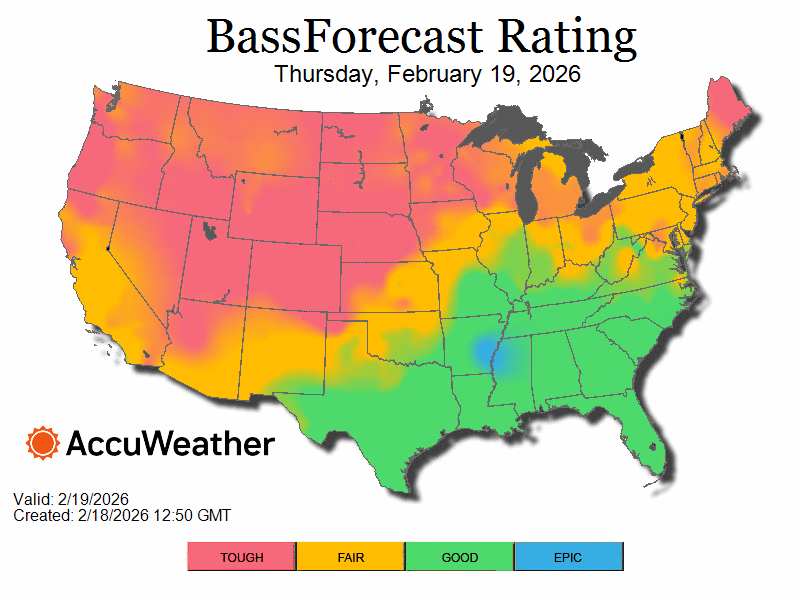
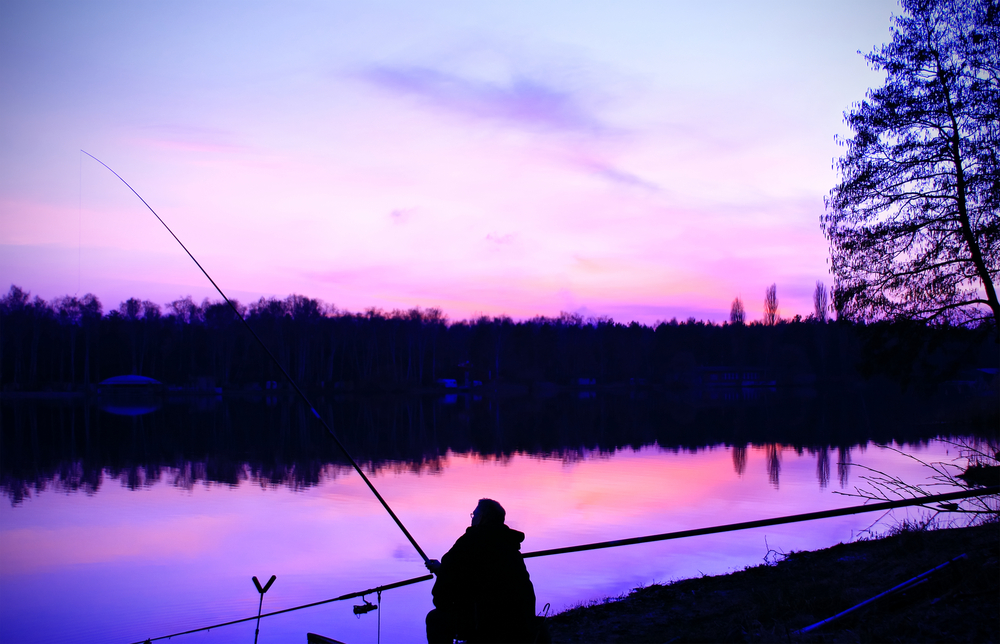
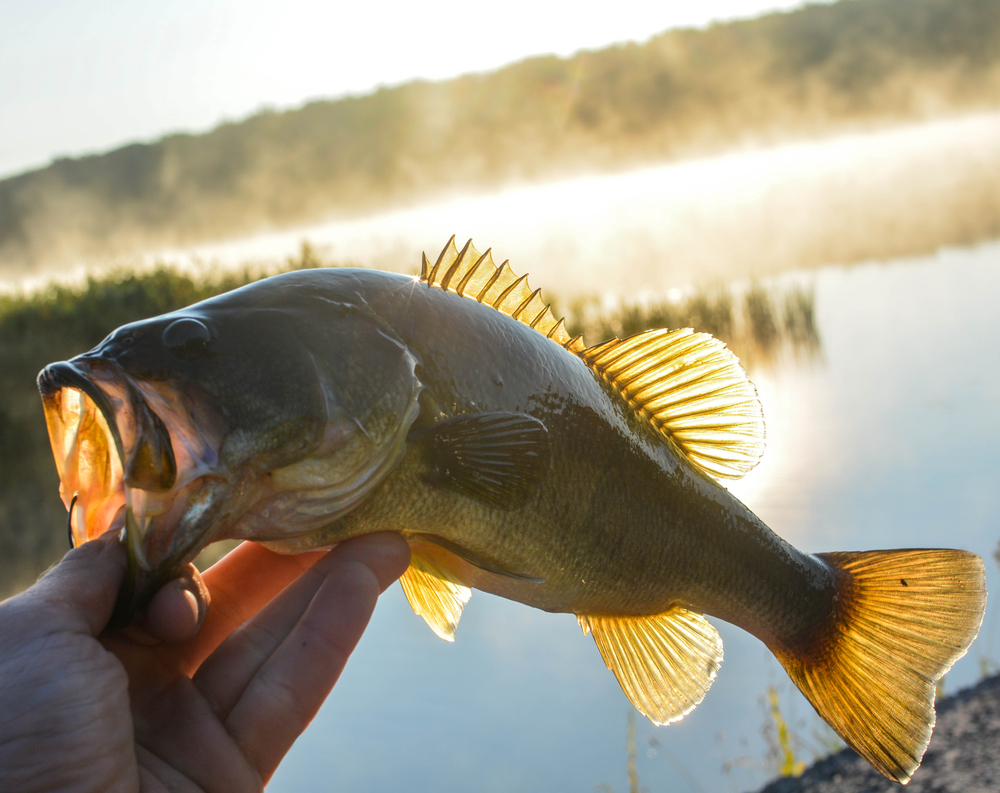
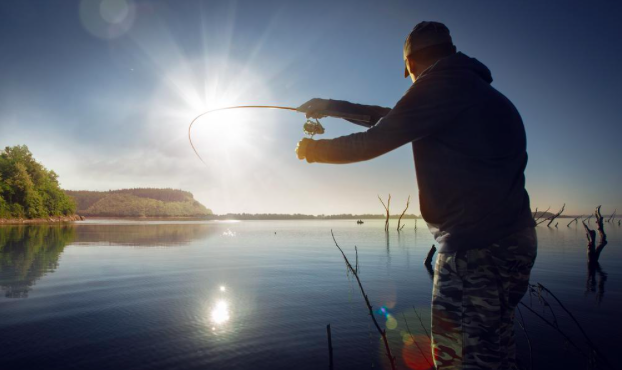
.png)
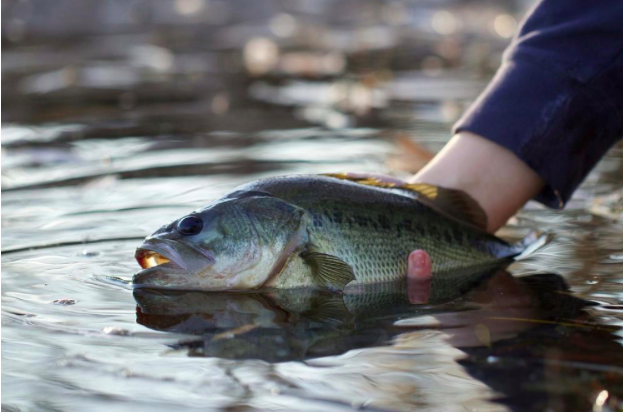
.png)
.png)